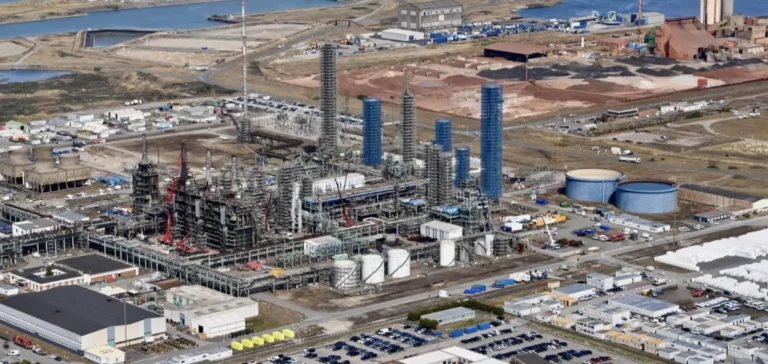Eni has initiated the authorisation process for the Environmental Impact Assessment to convert its industrial site in Priolo, Sicily, into a large-scale biorefinery and a chemical recycling unit. The Italian Ministry of the Environment and Energy Security has approved the submission, allowing the company to proceed with this industrial conversion project.
A strategic site for biofuel production
The project involves the use of the area currently occupied by Versalis’ ethylene unit, which will be progressively decommissioned, along with an adjacent zone dedicated to site services. The future biorefinery will process up to 500,000 tonnes of feedstock annually, mainly composed of vegetable residues, animal fats and vegetable oils. It will also include a biogenic feedstock pre-treatment unit and a hydrogen production plant for industrial operations.
This new facility will be Eni’s second biorefinery in Sicily, after the Gela plant, operational since 2019. It will produce Hydrotreated Vegetable Oil (HVO) diesel for road, rail and maritime transport, as well as Sustainable Aviation Fuel (SAF), with maximum adaptability to market demand.
Industrial deployment of Hoop® recycling technology
In parallel, Eni will develop at Priolo its first industrial-scale chemical recycling facility using Hoop® technology, developed by Versalis. This unit will have an annual processing capacity of 40,000 tonnes of plastic packaging waste, with an estimated output of 32,000 tonnes of pyrolysis oil. This material can then be used as feedstock in the production of new plastic products, including for sensitive applications such as food and pharmaceutical packaging.
A pilot facility using this technology was commissioned in Mantua in June 2025. The Priolo project marks the industrial scale-up of the process, designed to complement existing mechanical recycling and improve plastic recovery rates.
Institutional agreement and commissioning timeline
The formal agreement between Eni and the Italian Ministry of Enterprises and Made in Italy was signed in March 2025. It provides an institutional framework for the conversion plan announced in October 2024. The site is expected to be fully operational by the end of 2028. This initiative aligns with the group’s strategy of allocating capital to industrial segments with higher stability and technological potential.
The Hoop® technology is the result of a joint project with Italian company Servizi di Ricerche e Sviluppo (S.R.S.), combining a high-performance pyrolysis reactor with advanced tools for polymer analysis and process optimisation using artificial intelligence.






















